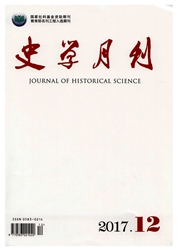

 中文摘要:
中文摘要:
抗战初期,国民党新疆督办兼省主席盛世才出于巩固政权的需要,在中共抗日民族统一战线政策感召下制定了“反帝”、“亲苏”、“民平”、“清廉”、“和平”、“建设”所谓“六大政策”,新疆社会出现了近世以来的新气象。在国民政府开发西北和巩固大后方的语境下,新疆在前苏联、中共党人及民主进步人士的协助下制订了社会经济全面建设计划,并付诸于推行,作为全疆支柱性产业的畜牧业亦迎来了有史以来变革的新时期。新疆通过从苏联引进种畜、进口药物器械、聘请专家和培养畜牧兽医人才等活动,在全疆范围内推广畜种改良、搭棚储草和牲畜保健等畜牧改良活动。这些举措使处于原始经营状态新疆畜牧业步入了现代化历程,促进了畜牧业经济的发展,为新中国成立后畜牧业生产恢复及发展奠定了基础。由于诸多不利因素的影响,新疆畜牧改良活动局限性亦在所难免。
 英文摘要:
英文摘要:
In the early period of Chinese Anti--Japanese war , the KMT Xinjiang governor Sheng Shicai had formulated the "Anti--imperialist", "Close Pro-- Soviet", "Ethnic equality", " Probity ", " Peace", "Construction" called "Six Policy" for the needs of consolidating his political power under the influence of CPC' S Anti--Japanese national united front policy, Xinjiang modern society has emerged a new phenomenon. In the context that Kuomintang government developed Northwest and consolidated home front, Xinjiang entered a new era ever with the help of Pro--soviet, the CPC and democrat. KMT Xinjiang local authorities imported breeding stock, medicine equipment, hired experts through the introduction of the Soviet Union and personnel training and other activities, and began to care about livestock improvement, construction stalls, livestock health care and other activities. These measures opened the modernization process of Xinjiang livestock production, promoted the healthy development of animal husbandry economy, and the foundation of livestock improvement after the founding of the PRC. Needless to say, because of the political unrest and many other negative factors, there are many limitations to Xinjiang; s livestock improvement activities.
 同期刊论文项目
同期刊论文项目
 同项目期刊论文
同项目期刊论文
 期刊信息
期刊信息
